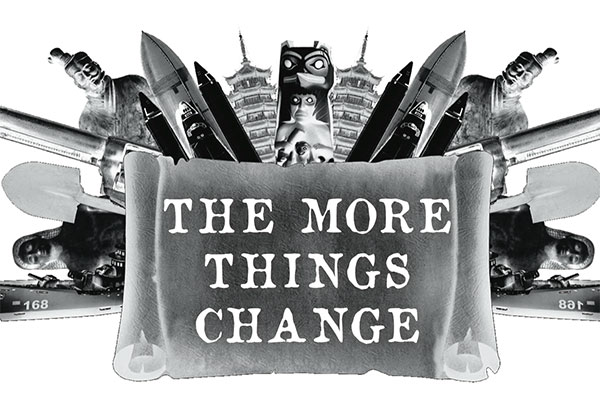The More Things Change | Issue 21
2-8 September
September 2, 31 BC: In the final and decisive confrontation that sealed the demise of the Roman Republic, Octavian faced off against Antony and Cleopatra at a place called Actium. Octavian was the adopted great-nephew of Julius Caesar, and would eventually be called Augustus and become the first Roman Emperor. His troops, commanded by his BFF Agrippa, beat Antony’s into the ground. Given that the battle at Actium led to the rise of the Roman Empire, it ended up being pretty important. In the Aeneid, Virgil’s epic poem of pro-Caesar propaganda, the hero is given a shield that just so happens to depict Actium. (Octavian did pretty well for a guy who was only 19 years old when he showed up in Rome and said he wanted to be in charge.)
September 8, 1504: After a long and turbulent history, Michelangelo’s Statue of David was unveiled. It had been originally commissioned in 1464, but issues with previous sculptors’ contracts meant that it was mostly neglected until 1501, when Michelangelo got his hands on it and made it into one of the most famous sculptures ever. Apparently it was supposed to go on the roof of a cathedral, but officials finally acknowledged that this was unlikely when they could no longer ignore that fact that it weighed more than six tonnes (it’s made of marble, and is 5.2 metres tall). This original plan might explain why its head and hands are out of proportion, though, so that’s something.
September 5, 1698: Tsar Peter I of Russia introduced a beard tax on everyone except the clergy and peasantry in an attempt to modernise the anti-European nobility. What it meant in practice was that people who’d paid the beard tax carried around a token as proof of payment. These tokens were inscribed with the phrase: “the beard is a superfluous burden.” You’d think Peter I might have had something better to do.
September 3, 1967: Sweden switched from driving on the left hand side of the road to the right, and there were actually fewer traffic accidents the following day than on the average Monday. This might have been due to everyone driving 10 kilometres per hour slower because they were concerned about traffic accidents.
September 4, 1998: Google was founded, and proceeded to gradually take over the world. It’s the most visited website on the Internet, and processes about one billion requests a day – about 24 petabytes of data. That’s 24 thousand terabytes, or 10 times the brain’s capacity to store memories. Google is hardcore.







